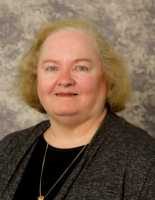25 Apr Simulation Exercises Reduce Anxiety of Taking Baby Home From NICU
MedicalResearch.com Interview with:
Deborah A. Raines PhD, EdS, RN, ANEF
School of Nursing
University at Buffalo
MedicalResearch.com: What is the background for this study? What are the main findings?
Response: This research grew from my experience as a neonatal nurse. I have worked with many families preparing to take their baby home and have seen the anxiety they experience wondering if they will be able to take care of their baby’s medical needs at home.
Parents are usually most anxious about emergency situations that may occur. Majority of these parents are able to state what they should do, but have never experienced the actual situation with their baby. This study was designed to see if a simulation experience would fill this gap in parents’ preparation for the discharge of their baby from the NICU. This study had parents participated in a customized simulation to have them experience the care needed by their baby at home following discharge from the NICU.
The findings revealed that parents reported a nearly 30 percent increase in confidence in their abilities to care for their baby after participating in the simulation.
MedicalResearch.com: What should readers take away from your report?
Response: Simulation with hi-fidelity simulators has been shown to be an effective learning strategy for healthcare professionals. The advantage of simulation is that parents can experience the “what if” problems that cannot be replicated in the clinical setting without placing the baby at risk. For example talking through the action you will take if your baby become apneic or is unresponsive is a different experience that having the baby become apneic or unresponsive in front of you and having to initiate the action on your own.
MedicalResearch.com: What recommendations do you have for future research as a result of this study?
Response: Future research will include a more diverse group of parents and other potential caregivers in the home. In addition, follow-up of the parent’s level of anxiety in the home following the baby’s discharge and the use of healthcare resources during the first year post discharge are areas in need of study. Taking a newborn home from the NICU is stressful for the parents but can also have a long-term impact on family dynamics. Interventions to decrease parents’ anxiety and to increase their competence can have a lasting impact on the well-being of the infant and the family unit.
MedicalResearch.com: Is there anything else you would like to add?
Response: Neonatal nurses provide highly comprehensive discharge teaching to parents. In many situations, these nurses have a long-term relationship with the parent and the parent relies on the nurse for assistance when caring for the baby. Just knowing that the nurse is nearby is reassuring to many parents. However, once the baby is discharged, the nurses are no longer nearby and the parent is on their own. Participating in a simulation experience, with staff not known to the parents, gives the parents the chance to experience and to plan for how they will handle situations with their baby at home. Simulation also provides a safe environment for parents to practice, rehearse and reflect on their new role as caregiver for their baby’s special needs
MedicalResearch.com: Thank you for your contribution to the MedicalResearch.com community.
Citation:
Citation: Raines, D.A. (2017). Simulation as Part of Discharge Teaching for Parents of Infants in the Neonatal Intensive Care Unit. MCN: The American Journal of Maternal-Child Nursing, 42 (2) 95-100
Note: Content is Not intended as medical advice. Please consult your health care provider regarding your specific medical condition and questions.
More Medical Research Interviews on MedicalResearch.com
[wysija_form id=”5″]
Last Updated on April 25, 2017 by Marie Benz MD FAAD

